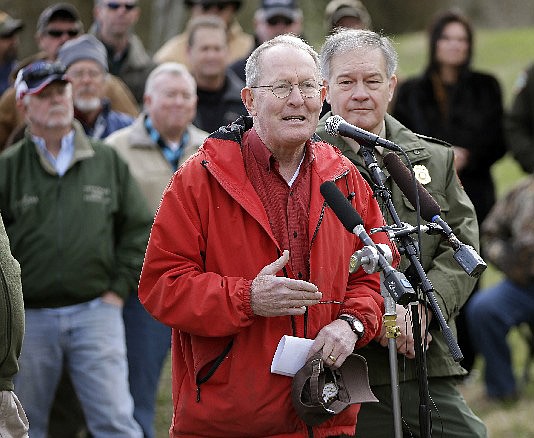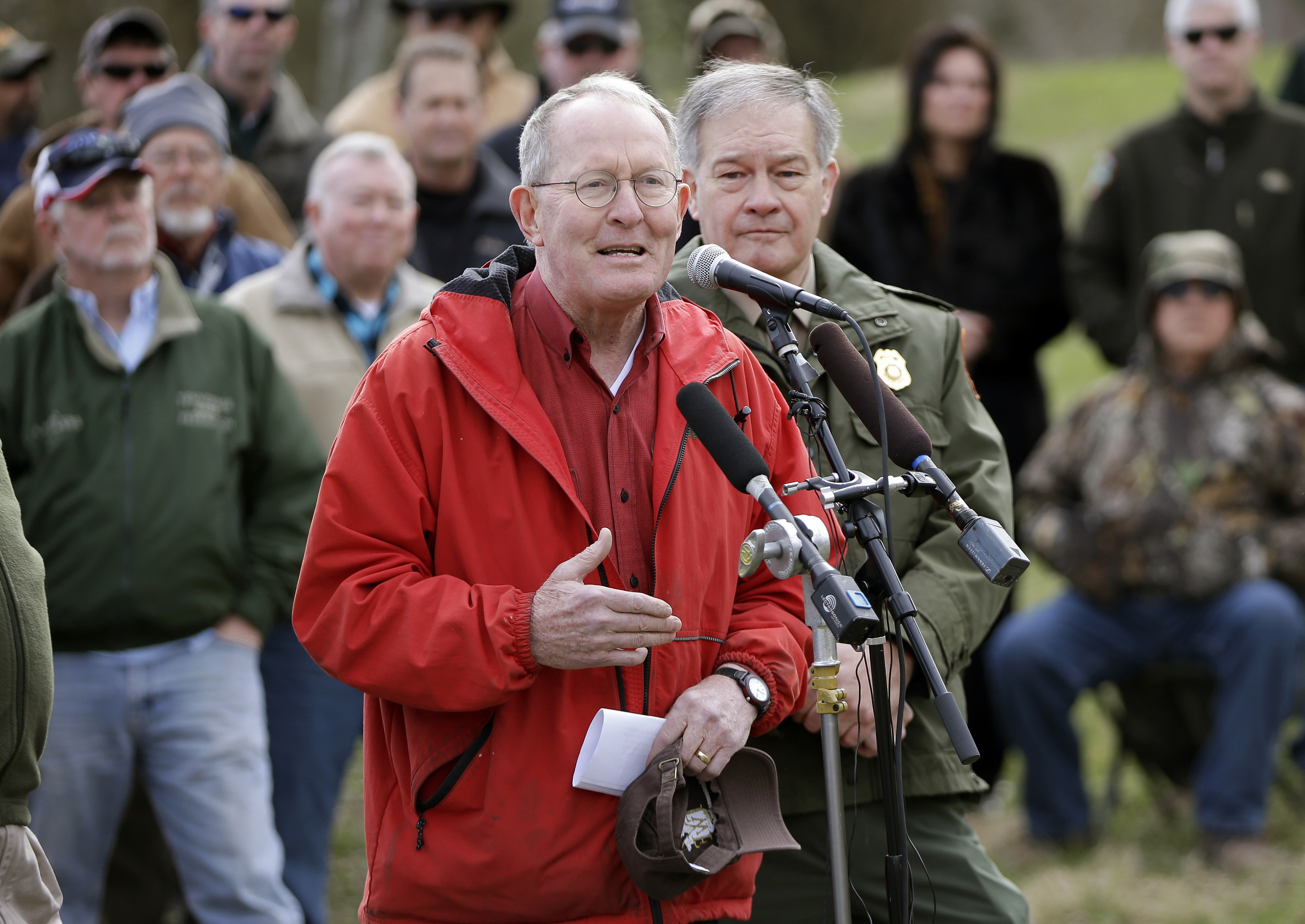NASHVILLE - Faced with a potentially serious primary challenger, Tennessee Sen. Lamar Alexander was not about to sit back and wait.
The former two-term governor locked down endorsements, banked more than $3 million and linked arms with popular Sen. Rand Paul of Kentucky and former GOP presidential contender Mike Huckabee. When conservative state Rep. Joe Carr announced he would challenge Alexander, the senator's team was ready.
"I learned to count in Maryville City Schools," Alexander wrote in a recent op-ed in The Tennessean, recalling his East Tennessee hometown. "So I know that if you only have 45 votes and you need 60 senators to get something important done like balancing the budget and fixing the debt, then you have to work with other people - that is, IF you really care about solving the problem."
Call it the Revenge of the Incumbents: Alexander is the latest Senate Republican staring down a primary challenge with aggressive tactics aimed at blunting any early momentum from tea party-backed opposition. The early moves seek to avoid the fate of former Senate colleagues who were bounced by tea party challengers in 2010 and 2012.
In Kentucky, Senate Republican leader Mitch McConnell has scorched challenger Matt Bevin with stinging ads accusing him of accepting government bailouts to help his family business and embellishing his academic background. Bevin, with help from tea party supporters, has responded with his own accusations, labeling the Senate leader "Mudslinging Mitch" and tarring him for supporting the Wall Street bailout in 2008.
South Carolina Sen. Lindsey Graham, who has drawn criticism from conservatives for pushing immigration reform, has raised more than $6 million for his re-election and could be helped by a crowded primary field that includes three conservative opponents. Wyoming Sen. Mike Enzi has locked up support from Senate leaders and his Republican colleagues in the face of a challenge from Liz Cheney, the daughter of former Vice President Dick Cheney.
The early tangling shows the degree to which some Republicans are trying to dispel critics who say they have been too prone to cut deals with Democrats and support the federal bailouts that marked the end of the Bush administration. With the public holding Congress in low esteem, they could face similar headwinds that derailed incumbents like Dick Lugar of Indiana, Bob Bennett of Utah and former Rep. Mike Castle of Delaware.
But they won't be surprised.
"They won't be caught asleep at the switch like Sen. Lugar," said Greg Strimple, a Republican pollster who advised John McCain's 2008 presidential campaign.
In Tennessee, Alexander had already spent close to $1 million on his campaign before Carr entered the race. The senator has secured a list of endorsements from county chairmen and former state chairs. He also ran an ad in July highlighting his work with Paul to halt federal fishing restrictions in their states and appeared with the tea party favorite at an event in Nashville last month.
Since Carr's announcement, Alexander has broadcast TV and radio ads citing his 23 votes to eliminate President Barack Obama's health care laws and featuring an exchange with the president over the merits of the sweeping overhaul. It follows a radio spot by the Senate Conservatives Fund, an outside GOP group, that criticized Alexander for declining to join efforts to threaten a government shutdown over health care funding.
"We never expected not to have some opposition in this political environment," said Alexander campaign adviser Tom Ingram. He suggested that tough tactics will come if needed, saying: "In politics you measure your opponents before you waste ammo. But when you fire, you do so very carefully and selectively. And you make sure you hit your target."
Carr, who had previously planned to challenge Republican Rep. Scott DesJarlais, has likened his campaign against Alexander to the Biblical story of David vs. Goliath, and he has said Alexander's voting record had betrayed conservatives in recent years.
Political unknown Brenda Lenard, who has struggled to raise money, also is challenging Alexander. Tennessee tea party groups also are planning a series of events to determine their preferred candidate, and several others are considering a bid, including Knox County Mayor Tim Burchett and former Williamson County GOP chairman Kevin Kookogey.
But Republicans call Carr the most serious challenger so far, and they say he could be hurt by remarks he made at a Republican National Convention event last year in which he appeared to agree with Missouri Senate candidate Todd Akin's statement that women have the biological ability to prevent pregnancy following a rape. Carr later tried to distance himself from the remarks.
Republicans say the two high-profile primaries -- Tennessee and Kentucky -- could hinge on whether the Senate Conservatives Fund and a separate group, the Club for Growth, pour money and advertising into the states to tear down the incumbents.
The Senate Conservatives Fund, which was founded by former South Carolina Sen. Jim DeMint, spent about $16 million in 2012 and $8 million in 2010. The Club for Growth, an anti-tax group led by former Indiana Rep. Chris Chocola, spent about $18 million last year and about $5.5 million in 2010, a sign that it could shake up these races if they get involved.
Matt Hoskins, the Senate Conservatives Fund's executive director, said both Alexander and McConnell should be on notice.
"You really can't put lipstick on a pig," Hoskins said. "You can surround yourself with as many endorsements as you want. If your record is liberal and people find out about that, there aren't enough endorsements in the world to cover that up."

